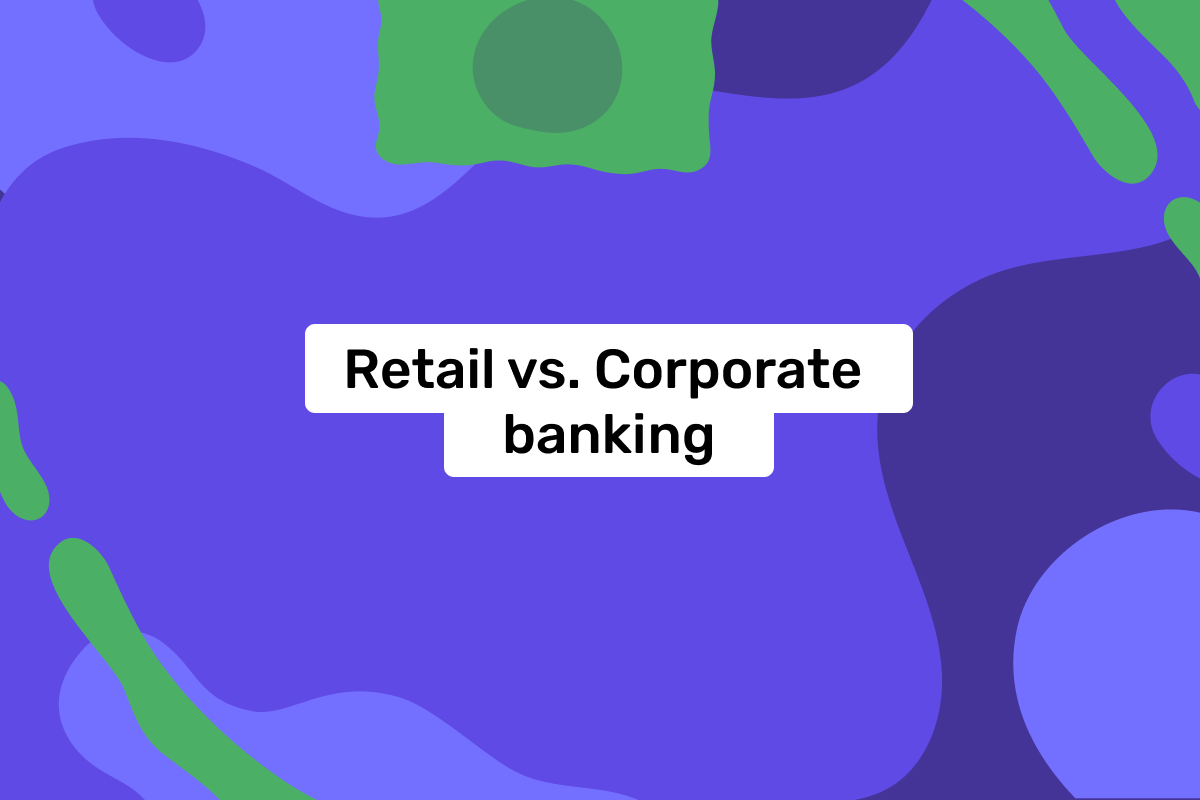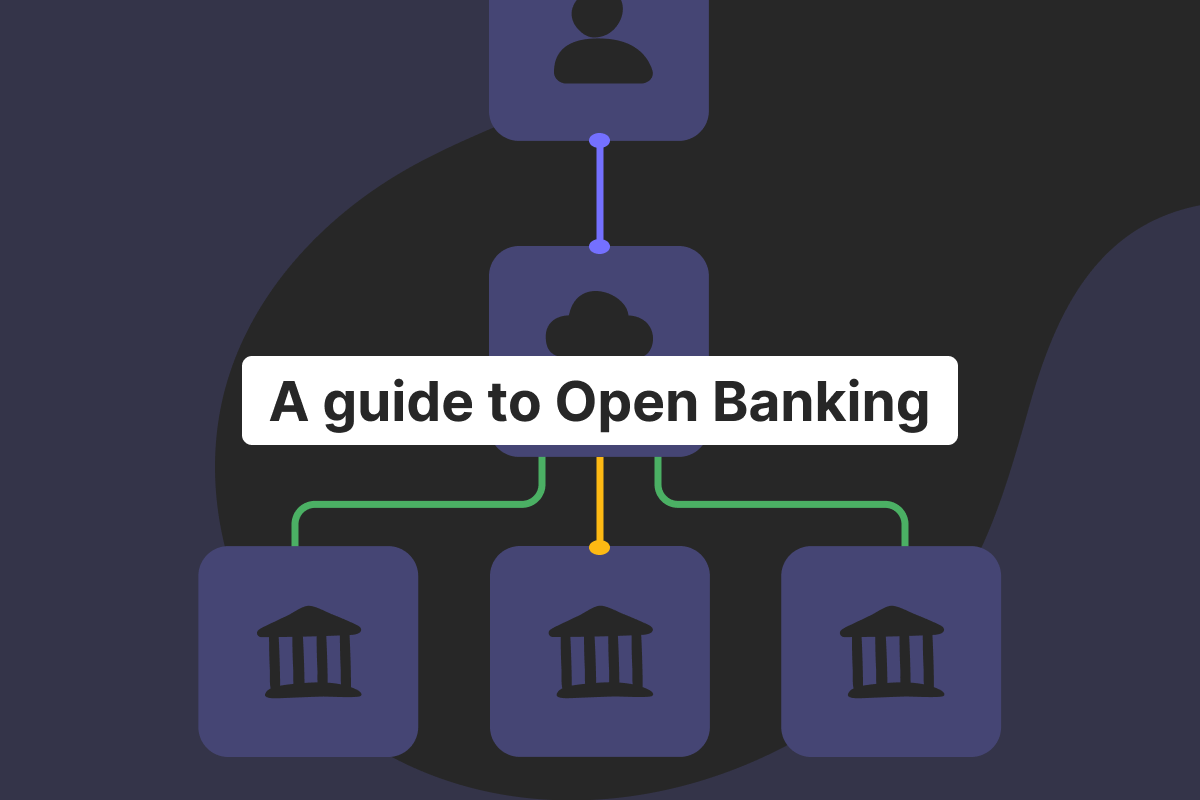Nowadays, banking is a broad concept encompassing multiple types of services. Just take a look at the article where we described different types of financial institutions – definitely, the market is very diverse. By the way, in that particular article, the Genome team mentioned retail and commercial (corporate) banks, and we decided to elaborate on the topic a bit more.
Thus, today, we will explain the difference between retail vs. corporate banking and also describe some of the basic banking services that retail and corporate banks provide.
What is a retail bank?
If you are looking for an account for your personal needs, retail banking is as traditional as you can get when it comes to financial services. All because well-known and long-established banking institutions represent many retail banks. You likely encounter a couple of retail banks on your way to work!
A retail bank (sometimes called a consumer bank) is a financial institution providing personal or consumer banking services and features to individuals. These are usually basic services that a client needs to navigate their day-to-day financial life. Thus, if you need more niche financial features, you may look into working with financial providers that cater to your specific demands via retail banking. The retail banking services usually include:
Checking accounts/salary accounts/ savings accounts;
Personal debit, credit, and prepaid cards;
Loans related to the individual’s life (e.i., car, home loans);
Mortgages;
Certificates of deposit;
Insurance.
To start checking accounts/savings accounts within an institution that offers retail banking, a person will need to provide some documents to prove their identity and, sometimes, income levels.
Although brick-and-mortar subsidiaries commonly represent retail banks, many of them also offer account opening options online – through the website or an app.
Now, we can move to its counterpart and find out the difference between retail vs. corporate banking.
What is corporate banking?
Corporate banking, also known as business banking or commercial banking, is a specialized area of banking that caters to the financial needs of businesses, institutions, and government entities. Unlike retail banking, which focuses on individual customers, corporate banking provides a range of financial services designed to support businesses in managing their finances, expanding operations, and navigating the complexities of international trade. Whether it’s a small startup or a large multinational corporation, corporate banking offers tailored solutions to meet the unique financial requirements of each business.
Corporate banking services
Corporate banking services encompass a wide array of financial products and tools within the banking industry designed to address the complex needs of businesses. Here are some of the key services offered:
Working capital loans: These short-term loans help businesses manage their day-to-day expenses, ensuring smooth operations even during cash flow shortages.
Trade financing: This includes various financing options to assist businesses in managing their international trade transactions, such as import/export financing and letters of credit.
Treasury services: These cash management services help businesses optimize their liquidity, ensuring they have the necessary funds available when needed.
Cash management: Services designed to help businesses manage their cash flows effectively, improving their overall financial performance.
Corporate lending: Loans provided to businesses to finance their expansion plans and growth strategies, such as acquiring new assets or entering new markets, making asset management easier.
Project finance: Specialized financing options for businesses to fund large-scale projects, such as infrastructure developments or major capital investments.
Capital market services: Assistance in raising capital through equity and debt markets, helping businesses secure the funds needed for growth.
Risk management: Services aimed at helping businesses manage their financial risks and protect their assets, including hedging strategies and insurance products.
Open an account
in Genome online
How do corporate banks make money?
Corporate banks generate revenue through multiple channels, each contributing to their overall profitability:
Interest income: One of the primary sources of income for corporate banks is the interest earned on loans and other financial products provided to businesses.
Fees: Corporate banks charge fees for various services, such as cash management, trade financing, and corporate lending, which add to their revenue.
Commission: They earn commissions on the sale of financial products, including insurance and investment products, offered to their corporate clients.
Trading: Profits from trading in financial markets also contribute to the income of corporate banks as they engage in buying and selling securities.
Advisory services: Fees charged for providing advisory services, such as mergers and acquisitions and strategic planning, are another significant revenue stream for corporate banks.
Benefits of corporate banking
Corporate banking offers numerous benefits to businesses, making it an essential component of their financial strategy:
Access to capital: Corporate banks provide businesses with the necessary capital to finance their growth plans and expansion strategies, ensuring they have the funds needed to seize new opportunities.
Financial expertise: With their extensive knowledge and experience, corporate banks offer valuable financial expertise and advice, helping businesses make informed decisions and manage their finances effectively.
Risk management: Corporate banks assist businesses in managing their financial risks, protecting their assets, and ensuring long-term stability through various risk management services.
Cash management: By offering comprehensive services for cash management, corporate banks help businesses optimize their liquidity and improve their overall financial performance.
International trade: Corporate banks provide trade financing options that enable businesses to manage their international trade transactions smoothly, facilitating global expansion and operations.
By understanding the distinct roles and services of retail and corporate banking, businesses and individuals can make more informed decisions about their financial needs and choose the right banking partner to support their goals.
Сorporate banking example
As in the case of retail banking, corporate banks are often well-known among the general public. But, there is an important distinction.
Corporate (aka commercial) banks cater their financial services and tools to businesses. Corporate banking focuses on providing tailored financial services and industry-specific expertise, distinguishing itself from retail banking, which prioritizes customer service and relationship building. Remember that these can be companies of any size – from startups to large corporations.
Corporate banking serves businesses, institutions, and government entities by offering specialized financial solutions like trade finance and cash management. The services of corporate banks often include:
The opening of business banking accounts, such as current accounts;
The issuance of debit and credit cards for business;
The management of funds and treasury;
Loans and other credit products;
Trade finance;
Lending of equipment.
As mentioned, corporate banks are quite well-established. For instance, Citibank, JP Morgan, and HSBC provide corporate banking services. Interestingly, many financial institutions often offer both retail and corporate banking features. So, for instance, you can start a personal account inside your bank and then open a business at the same institution!
Opening a business banking account won’t be as easy as starting a personal one. You will need to provide information to prove your identity, as well as documents to confirm your company’s legitimacy, turnover, business structure, and more. Next, it is time to highlight the differences between commercial banking vs. retail banking.
Open an account
in Genome online
Comparison: retail banking vs. corporate banking
After describing the main purposes of the two, let’s compare commercial vs. consumer banking within the banking industry.
Points of comparison | Retail banking | Corporate banking |
Clientele | Retail banking caters to individual consumers. | Corporate banks work with small and medium-sized companies and enterprises, catering specifically to corporate customers. |
Services the bank provides | Retail banks offer: checking, salary, savings accounts, and other types of personal accounts; personal debit, credit, and prepaid cards; personal loans; mortgages; certificates of deposit; insurance. | Corporate banks offer: current and other types of business banking accounts; debit and credit cards for business; funds management; treasury management; business loans; credit products; trade finance; lending of equipment. |
Account limits | Personal retail accounts normally allow clients to hold, send, and receive moderate amounts of funds, get personal loans. | Corporate banking users allow clients to store and transfer significantly larger sums of money, facilitating high-volume financial transactions. |
Customer support | Clients usually communicate with the bank’s support team via basic communication channels (emails, messengers, social media). | In addition to regular customer support tools, clients can also be assigned account managers. |
Fees | The fees for retail banking services are usually on the lower end. | The fees for corporate banking services are typically higher than for personal ones. |
The retail and commercial banking sectors play a crucial role in the financial industry and the broader economy. Basically, retail banking provides services for personal financial needs, while corporate net banking – for business ones.
If you need a personal or business account, we recommend checking out Genome. You can start any type of account online – from the comfort of your home or office!
We provide all clients with a wide range of services, including:
Multi-currency accounts available in 11 currencies (EUR, USD, GBP, PLN, CHF, JPY, CAD, CZK, HUF, SEK, AUD);
Dedicated EUR IBANs;
SEPA Instant and Credit Transfers;
Virtual and physical Visa cards, which are contactless and can be linked to accounts in 8 currencies.
Additionally, our business wallet users can unlock access to international transfers, including SWIFT, to receive and make payments to over 40 countries. Moreover, they get access to batch transfers and C2B payments. For more information, visit our website.
FAQ
What is the difference between corporate banking and retail banking?
The main difference between retail banking vs. corporate banking is that the former accepts applications from individuals, while corporate banks work with businesses of different sizes. Therefore, the services that retail and corporate banks provide also vary, as they cater to different clientele. Our team pointed out more differences between retail banking vs. corporate banking above.
What is the difference between corporate banking and personal banking?
The difference between corporate and personal banking is the same as between corporate and retail banking, as personal and retail banking are synonymous.






